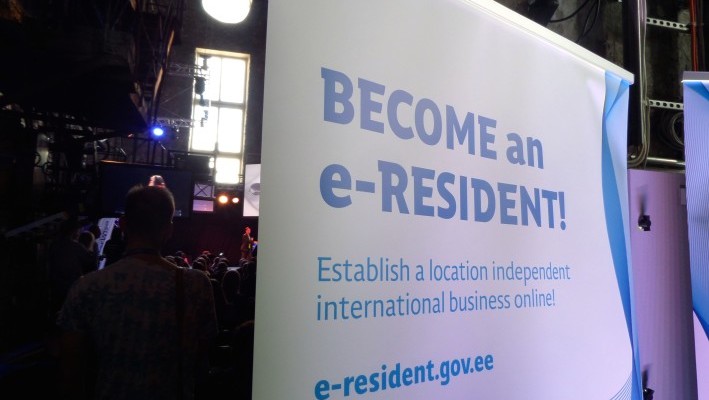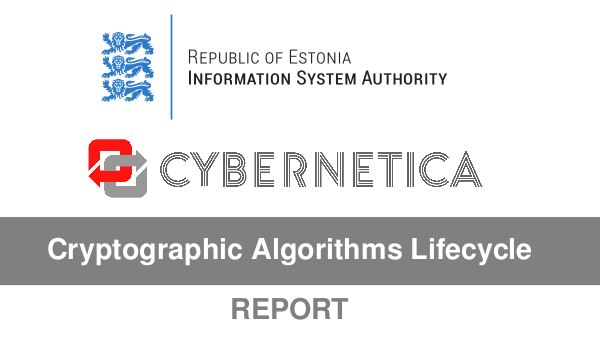
Monday, June 6th 2016, Akadeemia Tee 15a, Room ICT-315.
Defense committee: Rain Ottis (chairman), Hayretdin Bahsi, Ahto Buldas, Andro Kull, Risto Vaarandi, Raimundas Matulevicius.
The grades received (in random order): 4,4,4,3,3,3,3,3,2,1,0.
Time: 09:00
Student: Ferenc Szalai
Title: Does Cyber Security Exercise Information Sharing Work?
Supervisor: Olaf Manuel Maennel
Reviewer: Lauri Palkmets
Time: 09:40
Student: Taavi Sonets
Title: Improving User Simulation Team Workflow in the Context of Cyber Defense Exercise
Supervisor: Elar Lang, Rain Ottis
Reviewer: Priit Raspel
Time: 10:20
Student: Karl Kristjan Raik
Title: Improving Web Attack Campaign Overview in Cyber Defense Exercises
Supervisor: Elar Lang, Rain Ottis
Reviewer: Jaan Priisalu
Break 11:00 – 11:10
Time: 11:10
Student: Eve N Hunter
Title: A Comparative Analysis of Cybersecurity Guidelines and Standards for Nuclear Power Plants
Supervisor: Rain Ottis, Harry Kantola
Reviewer: Sten Mäses
Time: 11:40
Student: Alvar Ristikivi
Title: Failover test measurements of load balanced infrastructure
Supervisor: Toomas Lepik
Reviewer: Risto Vaarandi
Break 12:20 – 13:00
Time: 13:00
Student: Kristo Kapten
Title: Threat Modeling framework for Home Gaming Consoles
Supervisor: Hayretdin Bahsi
Reviewer: Emin Caliskan
Time: 13:40
Student: Sho Yano
Title: Security Analysis on Healthcare IoT Project
Supervisor: Olaf Manuel Maennel
Reviewer: Andro Kull
Time: 14:20
Student: Juan Manuel Rodríguez López
Title: Security Risk Assessment To The Use Of Digital Charting In Colombia
Supervisor: Alexander Horst Norta
Reviewer: Olaf Manuel Maennel
Break 15:00 – 15:10
Time: 15:10
Student: Florian Gasteiger
Title: R3AD an architecture to include UAVs in National Airspace
Supervisor: Olaf Manuel Maennel
Reviewer: Toomas Lepik
Time: 15:50
Student: Nisham Kizhakkedathil
Title: A Study Into the Prospects of Implementing End-to-End Verifiability in Estonian I-Voting
Supervisor: Tanel Tammet, Vadims Žuravļovs
Reviewer: Arnis Paršovs
Time: 16:30
Student: Rando Kulla
Title: Migrating PDF signing to New KSI Format
Supervisor: Jaan Priisalu, Ahto Truu
Reviewer: Ahto Buldas
Tuesday, June 7th 2016, Akadeemia Tee 15a, Room ICT-315.
The grades received (in random order): 5,5,4,0,?,?,?,?,?,?,?
Time: 09:00
Student: Teet Laeks
Title: Raising the Awareness of Cyber Security Based on Estonian Defence Forces
Supervisor: Tiia Sõmer, Danel Apse
Reviewer: Andri Rebane
Time: 09:40
Student: Andres Sumin
Title: Evaluation method for cyber awareness course
Supervisor: Sten Mäses, Liina Randmann
Reviewer: Sten Mäses
Time: 10:20
Student: Kevin Lwakatare
Title: Contributions of Understanding and Defending Against Social Engineering Attacks
Supervisor: Anton Vedeshin
Reviewer: Alexander Horst Norta
Break 11:00 – 11:10
Time: 11:10
Student: Alexandria Elaine Farár
Title: A Deceptive Methodology Towards Early Detection of Advanced Cyber Threats
Supervisor: Hayretdin Bahsi, Bernhards Blumbergs
Reviewer: Risto Vaarandi
Time: 11:40
Student: Onur Aydin Korkmaz
Title: Comprehensive Analysis of Cyber Attacks and Malware Using Low- and High-Interaction Honeypot
Supervisor: Truls Ringkjob
Reviewer: Mauno Pihelgas
Break 12:20 – 13:00
Time: 13:00
Student: Mina Gerges
Title: Log Monitoring and Event Correlation on Microsoft® Windows™ Using Simple Event Correlator
Supervisor: Risto Vaarandi
Reviewer: Tiit Hallas
Time: 13:40
Student: Chen Zhuge
Title: C-Based Implementation of Logcluster, a Data Clustering and Pattern Mining Algorithm for Event Logs
Supervisor: Risto Vaarandi
Reviewer: Innar Liiv
Time: 14:20
Student: Morteza Fakoorrad
Title: Application Layer of Software Defined Networking: pros and cons in terms of security
Supervisor: Olaf Manuel Maennel
Reviewer: Truls Ringkjob
Break 15:00 – 15:10
Time: 15:10
Student: Zaghum Wahab Awan
Title: A GUI Simulator For WSNs Based Protocols with Energy Harvesting and Proposed Hash Based Mathematical Modelling for the Security
Supervisor: Truls Ringkjob
Reviewer: Hayretdin Bahsi
Time: 15:50
Student: Jaan Vahtre
Title: Detection of ransomware on Windows operating systems
Supervisor: Jaan Priisalu
Reviewer: Toomas Lepik
Time: 16:30
Student: Vjatšeslav Panov
Title: Implementation of a Hash Function for Portable Executable Based on Structural Information
Supervisor: Truls Ringkob
Reviewer: Toomas Lepik
Wednesday, June 8th 2016, Akadeemia Tee 15a, Room ICT-315.
Defense committee: Raimundas Matulevicius (chairman), Hayretdin Bahsi, Rain Ottis, Meelis Roos, Vitaly Skachek.
Time: 09:00
Student: Luis Carlos Herrera Velasquez
Title: A Comprehensive Instrument for Identifying Critical Information Infrastructure Services
Supervisor: Olaf Manuel Maennel
Reviewer: Hayretdin Bahsi
Time: 09:40
Student: Camilo Andres Pantoja Viveros
Title: Analysis of the Cyber Attacks against ADS-B Perspective of Aviation Experts
Abstract: The present paper has a profound literature review of the relation between cyber security, aviation and the vulnerabilities prone by the increasing use of information systems in aviation realm.
Supervisor: Olaf Manuel Maennel, Raimundas Matulevicius
Reviewer: Sten Mäses
Time: 10:20
Student: Santiago Andres Sarmiento Bernal
Title: Detection solution analysis for simplistic spoofing attacks in commercial mini and micro UAVs
Abstract: This work analysis several spoofing detection methods found in the open literature, and selects the ones which can be suitable for mini and micro UAV technical specifications and operational scenario, for proposing a GPS spoofing detection solution developed in the application layer of an open source code Ground Control Station software SDK.
Supervisor: Olaf Manuel Maennel, Raimundas Matulevicius
Reviewer: Juhan-Peep Ernits
Break 11:00 – 11:10
Time: 11:10
Student: Allyson Ivy Hauptman
Title: Designing Digital Forensics Challenges for Multinational Cyber Defense Exercises
Supervisor: Patrycjusz Zdzichowski, Rain Ottis
Reviewer: Toomas Lepik
Time: 11:50
Student: Luis Alejandro Velasquez Hurtado
Title: Colombia and the intelligence cycle in the 21st century, the digital age
Supervisor: Olaf Manuel Maennel
Reviewer: Rain Ottis
Break 12:30 – 13:20
Time: 13:20
Student: Didier Dubey Suarez Medina
Title: Assessment of Web-based Information Security Awareness Courses
Supervisor: Maria Claudia Solarte Vasquez
Reviewer: Rain Ottis
Time: 14:00
Student: Yuri Andrea Pinto Rojas
Title: Development of National Cyber Security Strategies (NCSSs), and an Application of Perspective to the Colombian Case
Supervisor: Maria Claudia Solarte Vasquez
Reviewer: Hayretdin Bahsi
Break 14:40 – 14:50
Time: 14:50
Student: Alex Uriel Duran Santos
Title: Organizational Interaction Mechanisms Affecting Strategic Decision-Making During Cybercrime Investigations
Supervisor: Maria Claudia Solarte Vasquez
Reviewer: Jaan Priisalu
Time: 15:30
Student: Carlos Arturo Martinez Forero
Title: Tabletop Exercise For Cybersecurity Educational Training; Theoretical Grounding And Development
Abstract: The purpose of this thesis is to suggest the improvement of potential and perceived weaknesses on the educational components of cyber security strategies, discussing awareness-training models with significant impact on the participants, focusing on strategic decision-making level personnel that could partake of cyber related incidents.
Supervisor: Maria Claudia Solarte Vasquez, Raimundas Matulevicius
Reviewer: Uko Valtenberg, Tarmo Tuisk
Links:
https://livettu-my.sharepoint.com/personal/elena_vaarmets_ttu_ee/_layouts/15/WopiFrame.aspx?guestaccesstoken=rRFwY2aM1FudPqoucCsEwNvjb2YvdduB4x%2bLFywQvpo%3d&docid=0c199fcd8c7204b8b908fa40ad8e14730&action=view
http://www.cs.ut.ee/sites/default/files/2016/loput88d/DEFENCE%20OF%20CYBER%20SECURITY%20CURRICULUM%20THESES_in%20Tallinn_2016.pdf




